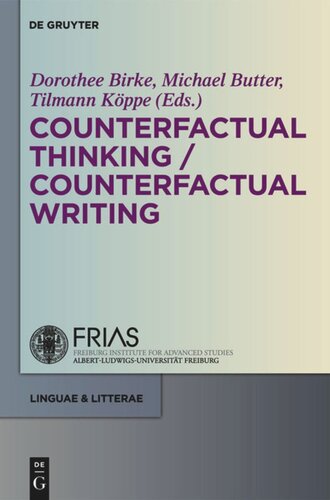

Most ebook files are in PDF format, so you can easily read them using various software such as Foxit Reader or directly on the Google Chrome browser.
Some ebook files are released by publishers in other formats such as .awz, .mobi, .epub, .fb2, etc. You may need to install specific software to read these formats on mobile/PC, such as Calibre.
Please read the tutorial at this link: https://ebookbell.com/faq
We offer FREE conversion to the popular formats you request; however, this may take some time. Therefore, right after payment, please email us, and we will try to provide the service as quickly as possible.
For some exceptional file formats or broken links (if any), please refrain from opening any disputes. Instead, email us first, and we will try to assist within a maximum of 6 hours.
EbookBell Team

4.3
48 reviewsCounterfactuality is currently a hotly debated topic. While for some disciplines such as linguistics, cognitive science, or psychology counterfactual scenarios have been an important object of study for quite a while, counterfactual thinking has in recent years emerged as a method of study for other disciplines, most notably the social sciences. This volume provides an overview of the current definitions and uses of the concept of counterfactuality in philosophy, historiography, political sciences, psychology, linguistics, physics, and literary studies. The individual contributions not only engage the controversies that the deployment of counterfactual thinking as a method still generates, they also highlight the concept’s potential to promote interdisciplinary exchange without neglecting the limitations and pitfalls of such a project. Moreover, the essays from literary studies, which make up about half of the volume, provide both a historical and a systematic perspective on the manifold ways in which counterfactual scenarios can be incorporated into and deployed in literary texts.